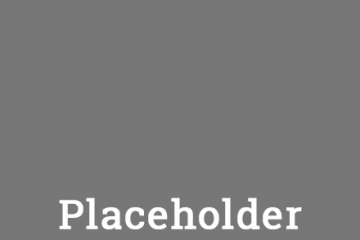Trans, Nonbinary and Two Spirit Young People’s Experiences of Government Care and Health Services in BC
In 2021, the Representative for Children and Youth in British Columbia contracted SARAVYC to undertake a series of studies using data from the BC Adolescent Health Survey and the Canadian Trans Youth Health Survey to understand the experiences of gender minority youth in government care and accessing health services. For the project, SARAVYC undertook four interrelated literature reviews, data analyses of BCAHS (2018) and CTYHS (2014 & 2019), and interviewed former and current gender minority youth with experiences in government care and health services in the province.
World Health Organization Global Guidelines on School Health Services
In 2019, the World Health Organization (WHO) tapped SARAVYC for urgent support. Background WHO’s Department of Maternal, Newborn, Child and Adolescent Health is currently developing a global guideline on school health services, and the Guidelines Development Group (GDG) is chaired by Dr. Elizabeth Saewyc. As one step in guideline development, WHO wanted to consult school health experts around the […]
Guys And Grief: Young Mens’ Responses To Accidental Death Of a Peer
Young men are at higher risk of injury and death than young women, and certain groups of young men are at higher risk that other young men. Within these high risk groups, little was known about how they react to the death of a friend, as well as how this event may or may […]
Survey of Trans Canadians’ Experiences with Gender-Affirming Surgery
The Gender-Affirming Surgery Experience Survey was the result of a collaboration between the Stigma and Resilience Among Vulnerable Youth Centre (SARAVYC) at the University of British Columbia, and Trans Care BC, a program of the Provincial Health Services Authority. Trans Care BC’s role is to enhance the coordination and availability of trans health services […]
Minnesota Runaway Intervention Project (RIP 10 Questions)
The Minnesota Runaway Intervention Project (RIP) provided health care, intensive support and life skill development for young runaway girls (aged 10 to 15) who had been or were at risk of being sexually assaulted or exploited. The aim of the program was to help girls heal from trauma and rebuild self-esteem and connectedness to family […]
Qualitative Study of Gender Affirming Surgery Experiences
The Qualitative Study of Gender-Affirming Surgery Experiences in BC is the result of a collaboration between the Stigma and Resilience Among Vulnerable Youth Centre (SARAVYC) at the University of British Columbia, and Trans Care BC, a program of the Provincial Health Services Authority. Trans Care BC’s role is to enhance the coordination and availability […]
Layers of Stigma Among Adolescents: Developing a Comprehensive Measure
Most stigma measures are for a single characteristic, such as mental illness, or HIV/AIDS. This approach does not allow us to capture “layered” stigma (i.e., the compound effects of stigma from multiple stigmatized characteristics). We developed a general stigmatization measure that included items that tap three dimensions of stigma: enacted stigma (rejecting hostile behaviours targeted toward […]
Discourse Analysis of Sexual Exploitation in Canadian News
Using a mixed methods approach, we critically explored the discourse used in printed news media to describe the sexual exploitation of youth. Our data set included approximately 1300 articles from various newspapers across Canada, 1988 – 2013 that discussed specific events, issues, research findings, and policy or legal changes related to the sexual exploitation […]
Psychometric Evaluation of Scales in the BC Adolescent Health Survey 2008
Since 1992, the BC Adolescent Health Survey has been conducted every 5 years in school districts across BC. The surveys have included a number of scales related to family and school connectedness, peer attitudes, school safety, and emotional health. In 2008, the fourth survey added some additional measures related to cultural connectedness and self-esteem. […]
Childhood Sexual Abuse, Substance Use and Substance-Use Related Sexual Behaviour in a Rural School Population
This study explored the links between sexual abuse, timing of abuse, substance use and sexual harms as a consequence of substance use, among adolescent students in rural Western Canada. Data was obtained from the 2011 East Kootenay Adolescent Drug Use Survey, a biennial survey that assesses substance use patterns, behaviours and attitudes, and related risk […]


